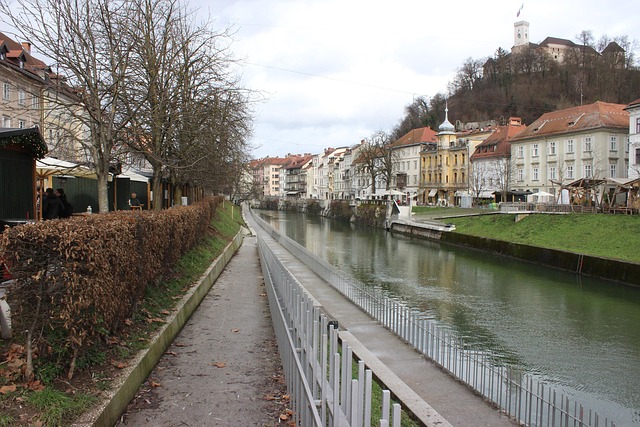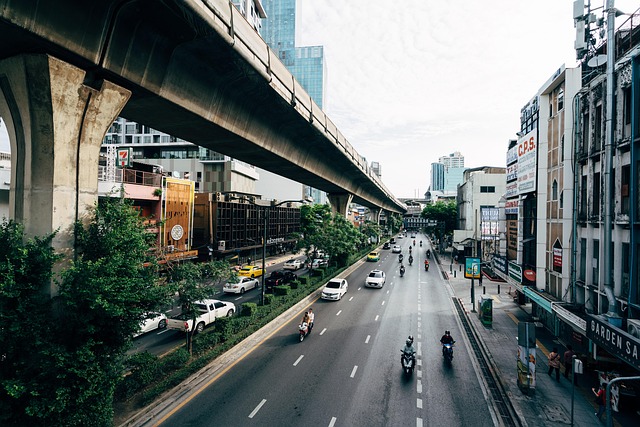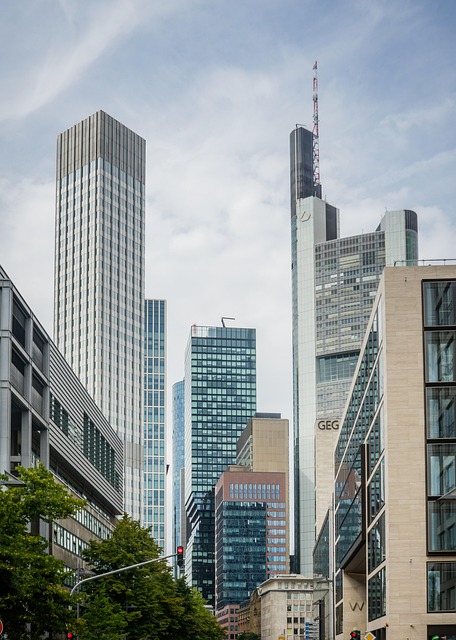Karachi, Pakistan's economic hub, relies on its intricate road network. The city is transforming this infrastructure through projects that widen roads, build overpasses, and introduce smart traffic management. Challenges include high vehicle density, extreme weather, and inadequate drainage, requiring tailored solutions like advanced pavement materials and efficient waste management. The National Highway Service (NHS) Karsaz plays a vital role in maintaining major thoroughfares year-round. Future plans emphasize sustainability with smart technologies and eco-friendly practices for a resilient, efficient transportation network.
Karachi, Pakistan’s bustling metropolis, faces significant challenges in maintaining safe and efficient road conditions. This article explores the intricate web of factors impacting Karachi’s roads, focusing on the National Highway Service (NHS) and its efforts to enhance infrastructure. From understanding the city’s unique traffic dynamics to identifying key quality determinants, we delve into strategies aimed at improving and sustaining road conditions in NHS Karsaz, Karachi. The ultimate goal: ensure smoother travel for all residents and visitors alike.
- Understanding Karachi's Road Infrastructure: A Basis for Safe Travel
- Challenges in Maintaining Optimal Road Conditions in Heavy Urban Traffic
- The Role of the NHS (National Highway Service) in Upkeeping Karachi's Roads
- Key Factors Affecting Road Condition Quality in Karachi
- Strategies and Future Plans to Improve and Sustain Road Conditions in NHS Karsaz, Karachi
Understanding Karachi's Road Infrastructure: A Basis for Safe Travel

Karachi, Pakistan’s economic hub, boasts a complex road network that serves as the city’s lifeblood. Understanding this infrastructure is crucial for ensuring safe travel within and through Karachi. The metropolis’s roads range from major thoroughfares to narrow alleys, each playing a vital role in facilitating the bustling hustle and bustle of the city.
The road conditions in Karachi are continually evolving, with ongoing development projects aimed at enhancing connectivity and safety. These efforts include widening key arteries, constructing new overpasses, and implementing smart traffic management systems. Such initiatives not only ease traffic congestion but also significantly improve travel experiences for both locals and visitors, making Karachi’s road infrastructure a testament to the city’s ongoing metamorphosis.
Challenges in Maintaining Optimal Road Conditions in Heavy Urban Traffic

Maintaining optimal road conditions in heavy urban traffic is a significant challenge for any city, particularly Karachi, Pakistan’s most populous metropolis. The dense population and high vehicle density in this bustling urban center place immense strain on roads, leading to rapid deterioration and increased maintenance requirements. Potholes, uneven surfaces, and cracked asphalt are common issues exacerbated by frequent heavy rainfall and extreme temperatures.
Navigating these challenges in Karachi requires a multifaceted approach. Efficient road management strategies include regular inspections, timely repairs, and the implementation of innovative solutions such as advanced pavement technologies and smart traffic management systems. The latter can help optimize flow and reduce congestion, thereby minimizing wear and tear on roads caused by frequent stop-and-go traffic. In light of these efforts, fostering public awareness about responsible driving practices and promoting sustainable transportation options are also vital to ensuring the long-term sustainability and optimal condition of Karachi’s road network.
The Role of the NHS (National Highway Service) in Upkeeping Karachi's Roads

The National Highway Service (NHS) plays a pivotal role in maintaining and improving road conditions in Karachi, Pakistan’s largest metropolis. With its extensive network of roads and highways connecting various parts of the city, efficient road management is essential for ensuring safe and smooth transportation. The NHS Karsaz, a dedicated division, focuses on keeping the city’s roads in optimal condition year-round.
Their responsibilities include regular upkeep, repair, and maintenance of major thoroughfares, ensuring they are free from defects and hazards. This involves sealing cracks, repairing potholes, and marking lanes to enhance visibility. Additionally, the NHS Karsaz oversees street lighting, ensures proper drainage systems, and addresses issues related to road signs and barriers, all of which contribute to better traffic flow and safety for Karachi’s residents and visitors alike.
Key Factors Affecting Road Condition Quality in Karachi

The road conditions in Karachi, a bustling metropolis, are influenced by several key factors. One of the primary considerations is the city’s unique geographical layout and topography. Karachi’s diverse terrain includes flat coastal areas, elevated hills, and narrow alleys, each presenting its own challenges for maintaining smooth and safe roads. The climate plays a significant role too; extreme heat and heavy monsoons can accelerate road wear and tear. Additionally, the ever-growing population and subsequent increase in vehicle ownership have put immense pressure on the city’s infrastructure. Congestion is a frequent issue, leading to longer travel times and increased stress on roads already facing strain from regular use.
Another critical aspect is the management and maintenance of roads by relevant authorities. The quality of road construction and materials used greatly impacts longevity. Inadequate drainage systems and poor waste management contribute to road damage, especially during monsoon seasons. Moreover, inefficient traffic management strategies can lead to unsafe driving conditions due to heavy traffic flows and inadequate signage. To improve road conditions in Karachi, a comprehensive approach is necessary, addressing these factors through effective urban planning, regular maintenance, and efficient traffic management practices tailored to the city’s unique characteristics.
Strategies and Future Plans to Improve and Sustain Road Conditions in NHS Karsaz, Karachi

In the vibrant city of Karachi, maintaining optimal road conditions is a continuous challenge, especially in areas like NHS Karsaz. The local authorities have implemented several strategies to address this issue. One key approach involves regular road maintenance and repair programs, ensuring that potholes are filled and surface textures are improved. Additionally, the introduction of advanced surveillance systems helps monitor road conditions in real-time, allowing for swift action on emerging problems. These efforts aim to enhance safety and accessibility for residents and visitors alike.
Looking ahead, the future plans for NHS Karsaz focus on sustainability and innovation. The integration of smart technologies is a priority, with sensors and data analytics playing a pivotal role in predicting and preventing road damage. Furthermore, the promotion of eco-friendly practices will be encouraged, such as adopting environmentally conscious construction materials and techniques to reduce the carbon footprint of road maintenance activities. Such initiatives are crucial steps towards creating a more resilient and sustainable transportation network for Karachi.
The road conditions in Karachi, as managed by the National Highway Service (NHS), present a complex challenge due to heavy urban traffic. Despite efforts to maintain optimal road conditions, factors like weather, vehicle wear and tear, and inadequate maintenance schedules impact quality. Going forward, implementing innovative strategies, including regular surveillance, data-driven decision-making, and community involvement, is crucial for improving and sustaining road conditions in NHS Karsaz, Karachi, ensuring safer travel for its bustling residents.

Leave a Reply